By Dashnor Kaloçi
Part Fifteen
Memorie.al / From the end of November 1944, when he officially came to power, until his death in 1985, the communist dictator Enver Hoxha, wanting to emulate his idol, Iosif Vissarionovich Stalin, and following his “path,” would occasionally carry out purges in the high leadership of the PPSH (Albanian Party of Labour). He had practically started this from 1941, with Anastas Lula and Sadik Premte, continued with Koçi Xoxe (and his group) in 1948-’49, and ended in 1981-’82, with the so-called “hostile group of Mehmet Shehu and Kadri Hazbiu.” In this time interval of more than four decades, as is already known, he eliminated almost all the founders of the Albanian Communist Party, the members of the Political Bureau of the Central Committee of the PPSH, and the main leaders of the so-called “National Liberation Anti-Fascist War.” As a result, from 1960 until the collapse of the communist regime in 1990, only Pilo Peristeri had escaped prison or internment, enjoying privileges as a perpetual candidate of the Political Bureau and the function of director of the “Enver Hoxha” Autotractor Combine!
However, unlike what he had done until the early ’70s, where Enver Hoxha’s “sword” had fallen mainly on the high leadership of the PKSH (Albanian Communist Party), (Koçi Xoxe, Kristo Themelko, Sotir Vullkani, Ramadan Çitaku, Tuk Jakova, Bedri Spahiu, Liri Gega, Gjin Marku, Koço Tashko, Liri Belishova, etc.), whom he had accused of “deviating from the Party line” and had condemned as “traitors and enemies of the people,” in the mid-’70s, the dictator Enver Hoxha began to strike against some members of the Political Bureau who also held ministerial posts, such as Abdyl Këllezi and Koço Theodhosi, accusing them also as “saboteurs of the Socialist Economy”!
And just as he had done with Beqir Balluku, Petrit Duma, and Hito Çako (who were sentenced to death and executed), where, to prove their “hostile activity,” Enver Hoxha also sentenced a large group of senior officers to prison and internment. Similarly, with the so-called “Economic Sabotage Group,” which, in addition to Këllezi and Theodhosi, also included the two ministers Kiço Ngjela and Vasil Kati, some senior officials of the Trade sector were accused and sentenced, including well-known directors and specialists such as Andrea Manço, Ahmet Jegeni, Bardhyl Frashëri, etc., as well as those from the Oil sector, such as well-known leaders, engineers, and specialists like Filip Nashi, Beqir Alija, Koço Plaku, Milto Gjikopulli, Protoko Murati, Dhimitër Stefa, Jani Konomi, Nuredin Skrapari, etc.
As we will see in the documents in question, the investigative process against the so-called “Hostile and Sabotage Group of the Economy,” which the Ministry of Internal Affairs and the State Security had carried out with fabricated accusations and false testimonies or those obtained under torture, etc., was also continued by the Supreme Court of the People’s Republic of Albania, headed by Aranit Çela, “channeling” the accusations from a “legal” standpoint to “prove” what Enver Hoxha had said in the Plenums of the Central Committee of the PPSH against Abdyl Këllezi, Koço Theodhosi, Kiço Ngjela, Vasil Kati, etc.
Much has been said and written about all these individuals since the ’90s, by members of those “groups,” their family members, etc. Memorie.al has secured the archival documents of the Supreme Court of the People’s Republic of Albania of that time and the former Presidium of the People’s Assembly, where the “Hostile Group of the Economy,” “Trade,” and “Oil” were reviewed. These documents are seeing the light of publication for the first time, and we are publishing them in several issues, along with the corresponding photos and facsimiles.
In the first and second parts of this series of articles, we published documents about the former director of Makinaimport, Andrea Manço, originally from the village of Boboshtica in Korça, whose brother, Todo Manço, had served for years as chief engineer and director of the Bulqiza chromium mine, and also as a member of the People’s Assembly for several legislatures. When he passed away on November 6, 1974, a grand funeral ceremony was held for him, with tributes in the center of Tirana, where in addition to Enver Hoxha, the entire high leadership of the PPSH, led by Prime Minister Mehmet Shehu, participated. While Todo Manço (“Hero of Socialist Labour”) received all these honors, his brother, Andrea, almost two years later, would be tortured in the cells of the State Security and sentenced to death by firing squad as an “enemy of the people” and “agent of foreign agencies,” and his grave has still not been found! In this article, we are publishing the documents about the so-called “Hostile Group in the oil sector,” led by well-known cadres and engineers, Filip Nashi, Beqir Alija, Koço Plaku, Dhimitër Stefa, Protoko Murati, Milto Gjikopulli, Nuredin Skrapari, Jani Konomi, etc., as well as the minutes of the meeting of the Presidium of the People’s Assembly of the People’s Republic of Albania, where the request of those sentenced to death, Koço Plaku, Andrea Manço, and Milto Gjikopulli, to have their lives spared was reviewed.
Continued from the previous issue
MINUTES OF THE MEETING OF THE PRESIDIUM OF THE PEOPLE’S ASSEMBLY, WHERE THE REQUEST FOR THE SPARING OF THE LIVES OF THE THREE CONVICTS SENTENCED TO DEATH, ANDREA MANÇO, MILTO GJIKOPULLI, AND KOÇO PLAKU, WAS ALSO REVIEWED
MINUTES
Held at the Meeting of the Presidium of the People’s Assembly, dated June 26, 1976, Saturday, 9:00 AM.
The following comrades participated in the meeting: Haxhi Lleshi (Chairman), Rita Marko, Shefqet Peçi (Deputy Chairmen), Telo Mezini (Secretary), Jovan Bardhi, Muharrem Sefa, Naunka Bozo, Nuredin Hoxha, Pilo Peristeri, Rrapo Dervishi, Spiro Moisiu, Zina Franja (Members).
The meeting was held with the following agenda:
- Information on the implementation of the orders of the Presidium of the People’s Assembly to prevent workplace disputes.
- Proposals for decorations.
- Proposals for granting Albanian citizenship.
- Proposals for pardons.
- Proposal of the Council of Ministers on the appointment of ambassadors.
Item four on the agenda is taken into consideration. Proposals for pardons.
SECRETARY OF THE PRESIDIUM
Telo Mezini
ADDITIONAL MATERIAL FOR ITEM FIVE OF THE AGENDA
On June 17, 1976, the Supreme Court of the People’s Republic of Albania issued the verdict against the Oil sabotage group.
Sentenced to death:
- Koço Josif Plaku, born in 1929, from the village of Hoçisht, Korçë, residing in Fier, with a social origin of a wealthy peasant, employee status, with the duty of head of the generalization cabinet at the Fier Oil Institute, with the profession of a geological engineer, with a higher education, married with two children, arrested on March 25, 1975, and…
- Milto Vasil Gjikopulli, born in 1938, from Dhërmi, Vlorë, residing in Fier, with a social origin of a poor peasant, employee status, with a higher education, with the profession of a geological engineer at the Fier Oil and Gas Institute, married with two children, arrested on March 25, 1975, sentenced (both) to death (by firing squad) because they, in collaboration with several others (who were sentenced to imprisonment:
Filip Nashi 25 years, Beqir Alia 25 years, Protoko Murati 23 years, Jani Konomi 23 years, Dhimitër Stefa 22 years, Nuredin Skrapari 20 years), have committed the crime of sabotage of the Oil and Gas industry, have engaged in agitation and propaganda against the people’s power, and both have also committed the crime of treason against the Homeland.
From the case materials, it appears that the hostile sabotage activity of the group extended to all sectors of Oil and Gas, severely damaging the socialist economy (damage calculated at 891,876,800 ALL), the country’s defense capability, etc. From the initial stage of studying and discovering oil- and gas-bearing sources, with the aim of leaving the country without reserves, they went against the fundamental requirements of the Party’s directives. They sabotaged the execution of geophysical works; with the aim of deepening the sabotage, the Neogene structures were abandoned, and they worked to liquidate the existing sources by exploiting them in the most barbaric way, etc. They did not heed the legitimate requests and repeated concerns of the workers and the respective enterprises on this issue.
In various forms, they engaged in agitation and propaganda against the people’s power. In the various articles written by them, their hostile views are clearly visible, where the struggle of our Party against Yugoslav and Soviet revisionists and internal enemies is denied; Soviet saboteurs are defended, etc. Milto Gjikopulli and Koço Plaku committed the crime of treason against the Homeland in the form of espionage, being old agents of Soviet intelligence.
Milto Gjikopulli, since 1959, had been given the task of being placed in the Oil industry with the purpose of sabotage, especially in the oil exploration sector, a task that had been repeated to him several times by the agency. As an author, co-author, and member of the Institute’s Scientific Council, he carried out concrete sabotage activities until the moment of his arrest.
Even Koço Plaku, despite his position of denial, was proven to have been in the service of Soviet intelligence and to have carried out the tasks left to him, sabotage especially in the field of Oil and Gas exploration, etc.
The verdict was final. The convicts themselves submitted a request for the sparing of their lives, a copy of which is attached.
REPORT OF THE PRESIDIUM OF THE PEOPLE’S ASSEMBLY, SENT TO THE MINISTRY OF INTERNAL AFFAIRS, THE INVESTIGATION DIRECTORATE, THE GENERAL PROSECUTOR’S OFFICE, AND THE SUPREME COURT, FOR THE EXECUTION OF THE DEATH PENALTY BY FIRING SQUAD FOR MILTO GJIKOPULLI, KOÇO PLAKU, AND ANDREA MANÇO
PEOPLE’S REPUBLIC OF ALBANIA
PRESIDIUM OF THE PEOPLE’S ASSEMBLY
TO THE MINISTRY OF INTERNAL
AFFAIRS TO THE INVESTIGATION
DIRECTORATE TO THE GENERAL
PROSECUTOR’S OFFICE TO THE SUPREME COURT
Tirana, June 26, 1976
The Presidium of the People’s Assembly, on June 26, 1976, decided to reject the requests for the sparing of the lives of the convicts listed below:
- Andrea Kristaq Manço, from the village of Boboshtica, Korçë, sentenced to death (by firing squad), by verdict no. 11, dated May 20, 1976, of the Criminal College of the Supreme Court.
- Koço Josif Plaku, from the village of Hoçisht, Korçë, sentenced to death (by firing squad), by verdict no. 13, dated June 17, 1976, of the Supreme Court.
- Milto Vasil Gjikopulli, from the village of Dhërmi, Vlorë, sentenced to death (by firing squad), by verdict no. 13, dated June 17, 1976.
Konc. B. Mosho Dakt. R. Bijo Copy 3 The court’s decisions shall be executed. / Memorie.al
SECRETARY OF THE PRESIDIUM
Telo Mezini




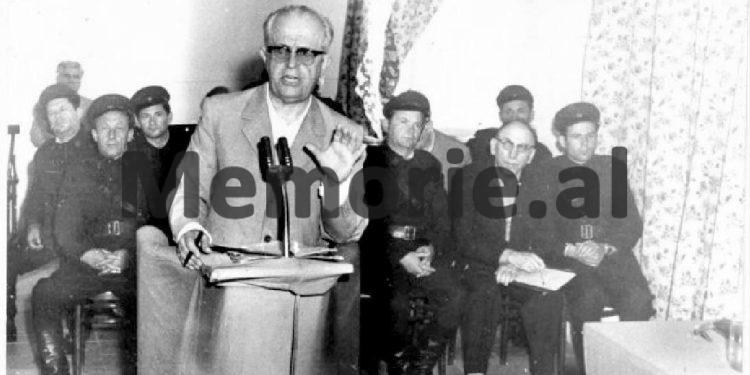
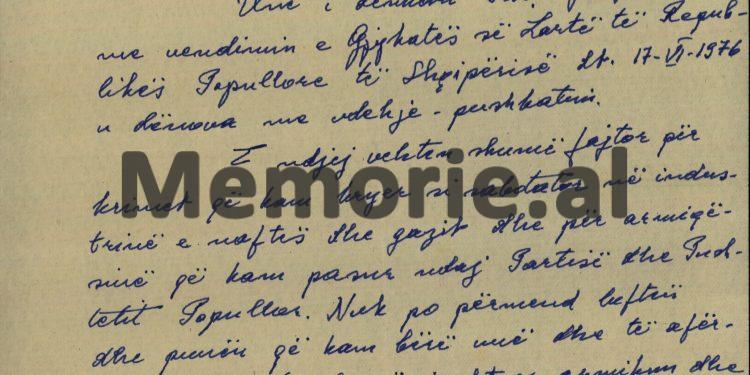
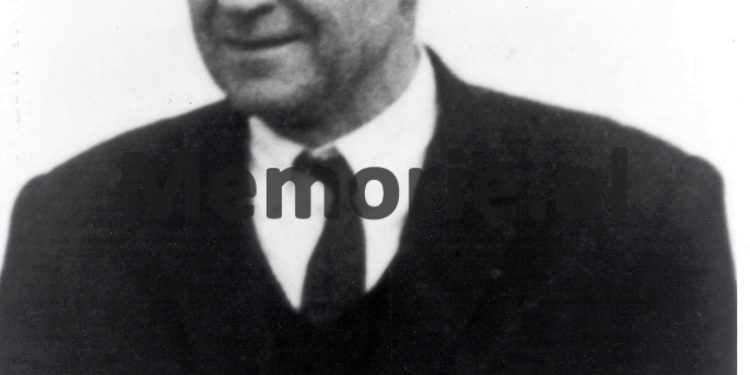
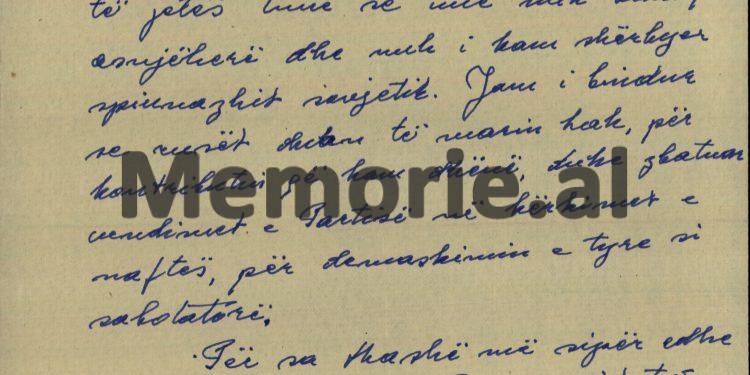
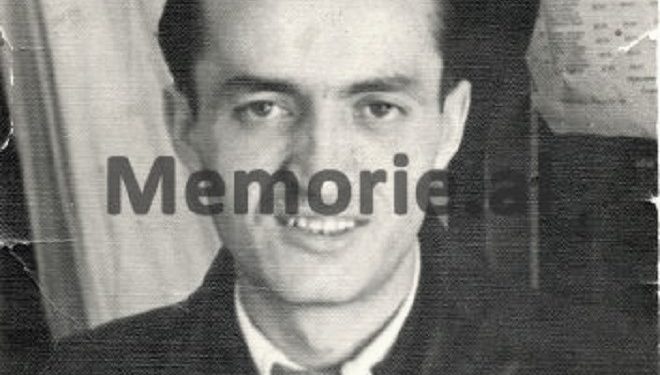
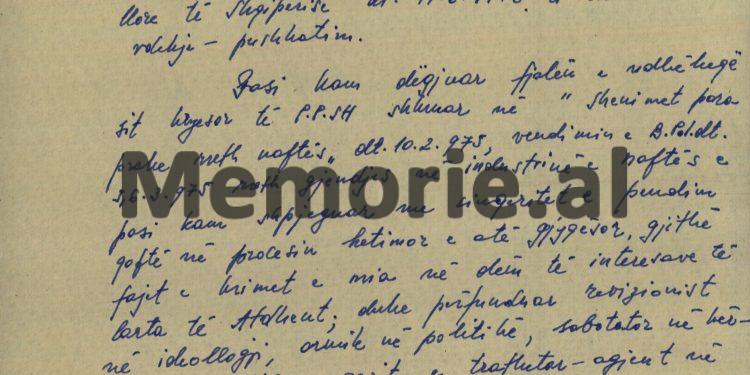
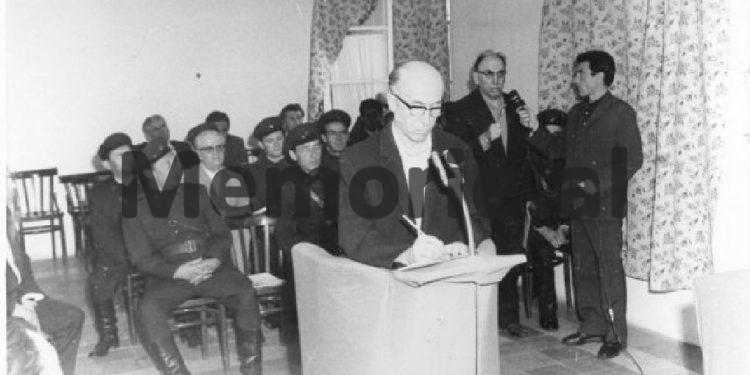
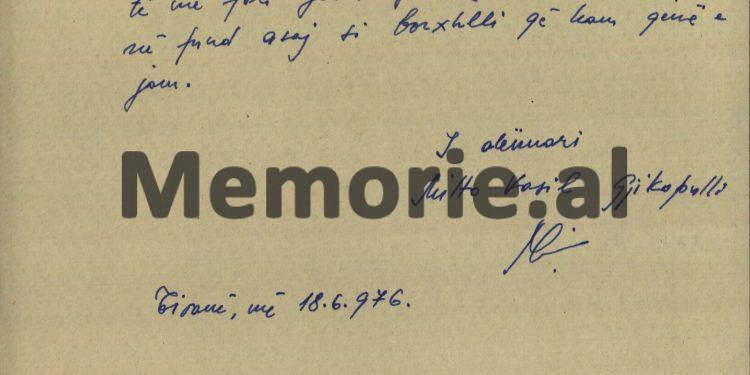
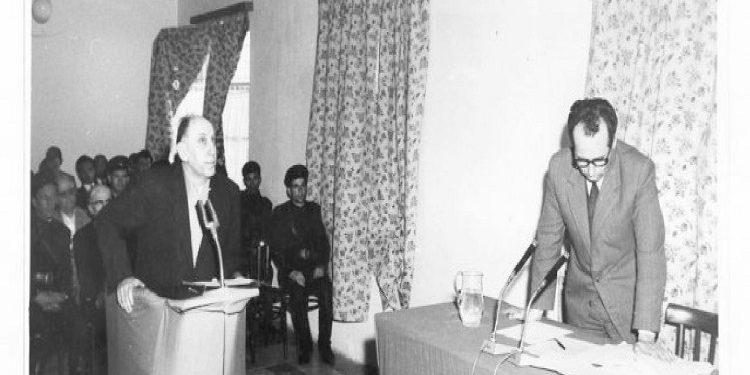
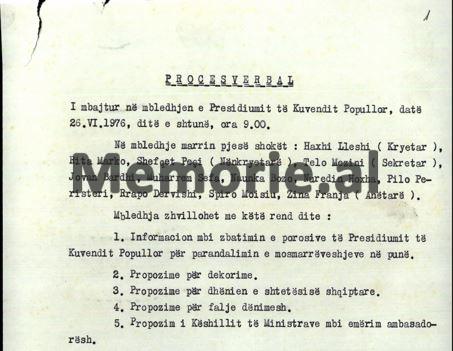
![“The ensemble, led by saxophonist M. Murthi, violinist M. Tare, [with] S. Reka on accordion and piano, [and] saxophonist S. Selmani, were…”/ The unknown history of the “Dajti” orchestra during the communist regime.](https://memorie.al/wp-content/uploads/2026/02/admin-ajax-3-350x250.jpg)
![“In an attempt to rescue one another, 10 workers were poisoned, but besides the brigadier, [another] 6 also died…”/ The secret document of June 11, 1979, is revealed, regarding the deaths of 6 employees at the Metallurgy Plant.](https://memorie.al/wp-content/uploads/2026/02/maxresdefault-350x250.jpg)




